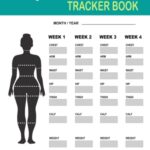Trying to navigate through the abundance of weight loss advice and fad diets can be overwhelming. With so many conflicting opinions and trends vying for your attention, it can feel like finding your way through a maze. But fear not, because in this article, you will discover some practical tips and insights to help you navigate through the noise and find a sustainable and effective approach to your weight loss journey.
In This Article
ToggleUnderstanding Weight Loss Advice
When it comes to weight loss, there is an overwhelming amount of advice available. It can be challenging to differentiate between useful and harmful advice. To make the best decisions for your health and well-being, it’s important to understand how to recognize credible sources and debunk common weight loss myths.
Differentiating between useful and harmful advice
Not all weight loss advice is created equal. Some advice may be based on scientific evidence and supported by research, while others may be based on personal anecdotes or misinformation. When evaluating weight loss advice, it’s essential to consider the source. Look for reputable sources such as registered dietitians, healthcare professionals, and reputable organizations when seeking information.
Recognizing common weight loss myths
Weight loss myths abound in popular media and online platforms. It’s crucial to be able to recognize these myths and avoid falling into their traps. Some common weight loss myths include “You can spot-reduce fat,” “Eating after 8 p.m. leads to weight gain,” and “Cutting out carbs is the key to losing weight.” These myths lack scientific evidence and can potentially be harmful to your weight loss journey. Stay informed and rely on evidence-based information to make informed decisions.
Identifying credible sources of information
To ensure that the weight loss advice you receive is accurate and trustworthy, it’s important to identify credible sources. Look for information from reputable organizations, such as the American Heart Association, the Academy of Nutrition and Dietetics, or governmental health agencies. Additionally, registered dietitians and healthcare professionals with expertise in weight management can provide reliable information and personalized guidance.
Evaluating Popular Fad Diets
Fad diets frequently come and go, promising quick and easy weight loss results. However, it’s vital to approach these diets with caution and evaluate their effectiveness and potential risks before jumping on the bandwagon.
Researching the effectiveness of fad diets
Before embarking on a fad diet, thoroughly research its efficacy. Many fad diets may produce short-term weight loss results, usually due to calorie restriction or the elimination of certain food groups. However, these diets are often difficult to sustain, and the weight lost is often regained once normal eating habits resume. Look for scientific studies or expert opinions to evaluate the long-term effectiveness of a particular fad diet before investing time and effort into it.
Understanding potential risks and side effects
Fad diets often come with risks and side effects that can harm your health. For example, extremely low-calorie diets can lead to nutrient deficiencies, loss of muscle mass, and a slowed metabolism. Other diets may restrict certain food groups, leading to imbalances in nutrients and potential adverse effects on health. It’s crucial to understand the potential risks and side effects associated with any diet before starting it.
Consulting a healthcare professional before trying a new diet
To ensure your safety and well-being, it’s best to consult a healthcare professional before trying a new diet, especially if you have any underlying health conditions or take medications. A healthcare professional can provide personalized advice based on your specific needs and medical history, helping you make informed decisions about the most suitable dietary approach for your weight loss goals.

This image is property of images.pexels.com.
Establishing Realistic Weight Loss Goals
Setting realistic weight loss goals is crucial in maintaining motivation and achieving long-term success. It’s essential to consider individual factors such as age, body type, and metabolism when establishing these goals.
Setting achievable targets for sustainable weight loss
When setting weight loss goals, it’s important to be realistic and focus on sustainable progress. Aim for a weight loss of 1-2 pounds per week as this is considered a healthy and attainable rate. Setting overwhelming goals can lead to frustration and may increase the likelihood of giving up. Celebrate small milestones along the way to stay motivated.
Considering individual factors such as age, body type, and metabolism
Weight loss is influenced by various factors, including age, body type, and metabolism. Recognize that weight loss may vary from person to person, and it’s essential to focus on individual progress rather than comparing yourself to others. Embrace your unique journey and work towards improving your health and well-being.
Avoiding extreme approaches or rapid weight loss schemes
Extreme approaches to weight loss, such as crash diets or rapid weight loss schemes, can be detrimental to your health. These approaches often lead to muscle loss, nutrient deficiencies, and a slowed metabolism. Instead, prioritize gradual weight loss through sustainable lifestyle changes, such as a balanced diet and regular physical activity. Remember, slow and steady wins the race.
Creating a Balanced and Nutritious Meal Plan
A balanced and nutritious meal plan is key to achieving and maintaining weight loss. It’s important to understand the concept of a calorie deficit, prioritize whole foods, and consider seeking guidance from a registered dietitian for personalized meal plans.
Understanding the importance of a calorie deficit for weight loss
Weight loss occurs when you consume fewer calories than your body needs, creating a calorie deficit. However, it’s crucial to strike a balance and not excessively restrict calories, as this can be unsustainable and may lead to nutrient deficiencies. Aim for a moderate calorie deficit that allows for gradual weight loss while still ensuring you meet your nutritional needs.
Prioritizing whole foods and incorporating a variety of nutrients
Whole foods, including fruits, vegetables, whole grains, lean proteins, and healthy fats, should form the foundation of your meal plan. These foods are rich in essential nutrients, fiber, and antioxidants, promoting optimal health and aiding in weight loss. By incorporating a variety of nutrients into your meals, you ensure that your body receives all the necessary building blocks for sustainable weight loss.
Seeking guidance from a registered dietitian for personalized meal plans
Every individual has unique nutritional needs, and seeking guidance from a registered dietitian can provide personalized meal plans tailored to your specific requirements. A dietitian can help you identify appropriate portion sizes, balance macronutrients, and develop strategies for overcoming challenges such as emotional eating or dining out. Their professional expertise ensures that your meal plan aligns with your weight loss goals while keeping your overall health in mind.

This image is property of images.pexels.com.
Incorporating Regular Physical Activity
Physical activity plays a crucial role in weight loss and overall well-being. By choosing activities you enjoy, creating a consistent exercise routine, and exploring different types of exercise, you can enhance your weight loss journey.
Choosing activities that align with personal preferences and fitness level
Engaging in physical activities that align with your personal preferences and fitness level increases the likelihood of adherence. Whether it’s walking, dancing, swimming, or weightlifting, finding activities you enjoy not only makes exercise more enjoyable but also improves adherence to an exercise routine. Experiment with different activities until you find what works best for you.
Creating a consistent exercise routine
Consistency is key when it comes to physical activity and weight loss. Aim for a minimum of 150 minutes of moderate-intensity aerobic exercise or 75 minutes of vigorous-intensity aerobic exercise per week, along with incorporating strength training exercises at least twice a week. Establishing a regular exercise routine helps to make physical activity a habit and maximizes its impact on weight loss.
Exploring different types of exercise and their impact on weight loss
Different types of exercise have varying impacts on weight loss. While aerobic exercises like running or cycling burn calories during the activity, resistance training builds muscle, which increases your metabolism and helps burn more calories at rest. Incorporate a combination of aerobic and strength training activities into your routine to optimize weight loss results. Additionally, trying new activities can challenge your muscles and prevent workout boredom.
Managing Emotional and Behavioral Factors
Weight loss is not solely about diet and exercise; emotional and behavioral factors also play a significant role. By identifying emotional eating triggers, developing coping mechanisms, and seeking support, you can address these factors and improve your chances of long-term success.
Identifying emotional eating triggers
Emotional eating is a common behavior where food is used as a coping mechanism for stress, boredom, or other emotional triggers. Identifying your emotional eating triggers is essential for breaking this cycle. Pay attention to the emotions or situations that trigger your desire to eat, whether it’s during times of stress, sadness, or even celebrations. Recognizing these triggers can help you find healthier ways to address your emotions.
Developing coping mechanisms for stress and negative emotions
Instead of turning to food for comfort, it’s essential to develop alternative coping mechanisms for stress and negative emotions. Engage in activities that bring you joy or help relieve stress, such as practicing mindfulness, exercising, journaling, or spending time with loved ones. By finding healthier ways to manage emotions, you can reduce reliance on food and make more mindful choices for overall well-being.
Seeking support from friends, family, or a therapist
Building a support system can greatly enhance your weight loss journey. Enlist the support of friends, family, or a therapist who can provide encouragement, accountability, and understanding. Sharing your goals and progress with others creates a sense of community and fosters motivation. Additionally, a therapist can help you develop healthy coping strategies, address underlying emotional issues, and provide guidance throughout your weight loss journey.

This image is property of images.pexels.com.
Understanding the Role of Sleep in Weight Loss
Sleep plays a crucial role in weight management, and getting adequate, quality sleep is essential for effective weight loss. Understanding the connection between sleep deprivation and weight gain, establishing healthy sleep habits, and addressing any sleep disorders are vital in achieving your weight loss goals.
Exploring the connection between sleep deprivation and weight gain
Research has shown that inadequate sleep or sleep deprivation can contribute to weight gain and hinder weight loss efforts. When you don’t get enough sleep, it disrupts hormonal regulation, increasing hunger hormones and reducing satiety hormones. This can lead to increased appetite, cravings, and a propensity to consume more calories. Prioritizing quality sleep can help regulate these hormones and support weight management.
Establishing healthy sleep habits for improved weight management
Establishing healthy sleep habits, often referred to as sleep hygiene, can improve your weight management efforts. Maintain a consistent sleep schedule by going to bed and waking up at the same time each day, even on weekends. Create a sleep-friendly environment by keeping your bedroom cool, dark, and quiet. Additionally, limit caffeine and electronic device use close to bedtime, as they can interfere with falling asleep and getting quality rest.
Addressing sleep disorders that may hinder weight loss
Sleep disorders such as sleep apnea or insomnia can interfere with quality sleep and hinder weight loss efforts. If you suspect you may have a sleep disorder, consult a healthcare professional for evaluation and appropriate treatment. Treating sleep disorders can improve sleep quality, increase energy levels, and facilitate better weight management outcomes.
Tracking Progress and Making Adjustments
Tracking progress and making necessary adjustments along the way are essential for long-term weight loss success. By using tools like food diaries or mobile applications, recognizing plateaus, and learning from setbacks, you can stay motivated and on track towards achieving your goals.
Using tools like food diaries or mobile applications to monitor eating habits and exercise
Keeping track of your food intake and exercise habits can provide valuable insights and help identify areas for improvement. Utilize food diaries or mobile applications that allow you to record your meals, snacks, and exercise routines. These tools can help you become more aware of your habits, track your progress, and make informed decisions about changes that may be necessary for continued success.
Recognizing plateaus and implementing changes to overcome them
Weight loss plateaus, where progress stalls despite your efforts, are common in many weight loss journeys. It’s important not to get discouraged when faced with a plateau and instead use it as an opportunity for reflection and adjustment. Reevaluate your eating and exercise habits, consider changing up your routine, or seek professional guidance to overcome the plateau and continue progressing towards your weight loss goals.
Learning from setbacks and staying motivated
Setbacks are a natural part of any weight loss journey, and it’s essential to approach them with resilience and a growth mindset. Instead of dwelling on setbacks, use them as learning experiences. Reflect on the factors that led to the setback, identify potential solutions, and adjust your approach accordingly. Staying motivated during challenging times can be aided by focusing on the positive changes you’ve already made and surrounding yourself with supportive individuals.

Avoiding Extreme Measures and Unhealthy Behaviors
It’s crucial to prioritize overall health and well-being over a number on the scale. Avoiding extreme measures such as crash diets, excessive calorie restrictions, and unregulated weight loss supplements is vital for your long-term health.
Steering clear of crash diets and extreme calorie restrictions
Crash diets that promise rapid weight loss in a short period often involve extreme calorie restrictions and can be harmful to your health. These diets are unsustainable and can lead to nutrient deficiencies, muscle loss, and a slowed metabolism. Instead, focus on gradual, sustainable lifestyle changes that promote healthy habits and long-term weight maintenance.
Understanding the risks of weight loss supplements and unregulated products
Weight loss supplements and products marketed as quick fixes may seem tempting, but they often lack scientific evidence and can have adverse effects on your health. Many of these products are not regulated by health authorities and may contain potentially harmful ingredients. Prioritize whole foods, regular physical activity, and evidence-based strategies for weight loss instead of relying on unregulated substances.
Prioritizing overall health and well-being over a number on the scale
Weight loss is not solely about achieving a certain number on the scale; it’s about improving your overall health and well-being. Focus on incorporating healthy habits into your lifestyle, such as a balanced diet, regular physical activity, and managing stress. Emphasize sustainable changes that promote lifelong wellness rather than solely fixating on weight loss goals.
Seeking Professional Guidance and Support
Seeking professional guidance and support is invaluable on your weight loss journey. Consulting a healthcare professional, working with a registered dietitian, or engaging in weight loss support groups can provide personalized advice, reliable information, and a sense of community.
Consulting a healthcare professional for personalized advice and guidance
A healthcare professional, such as your primary care physician, can provide valuable guidance and support throughout your weight loss journey. They can assess your overall health, provide personalized advice, and monitor any potential health concerns that may arise. Regular check-ups and open communication with your healthcare team ensure you have the necessary guidance to make informed decisions about your weight loss goals.
Considering the benefits of working with a registered dietitian or certified fitness trainer
Registered dietitians and certified fitness trainers specialize in nutrition and exercise, respectively, and can provide expert guidance tailored to your needs. Working with a registered dietitian can help you develop a personalized meal plan, navigate the complexities of nutrition, and address any dietary concerns or challenges. A certified fitness trainer can design a safe and effective exercise program, provide motivation and accountability, and ensure proper form and technique during workouts. Their expertise can greatly enhance your weight loss efforts.
Engaging in supportive communities or weight loss support groups
Joining supportive communities or weight loss support groups can provide invaluable emotional support, motivation, and accountability. These communities allow for shared experiences, advice, and encouragement, creating a sense of camaraderie. Whether it’s online communities, local support groups, or seeking out like-minded individuals, having a support network that understands your challenges and celebrates your successes can make a significant difference in your weight loss journey.
In conclusion, navigating weight loss can be challenging, but understanding the fundamentals and seeking credible guidance and support sets you up for success. By recognizing useful advice, evaluating fad diets, setting realistic goals, creating balanced meal plans, incorporating physical activity, managing emotional factors, prioritizing sleep, tracking progress, avoiding extreme measures, and seeking professional guidance, you can embark on a sustainable weight loss journey that promotes overall health and well-being. Remember, it’s not just about the number on the scale but the journey towards a healthier lifestyle.
Related posts:
 Finding the Perfect Fit: Exploring Suitable and Enjoyable Physical Activities
Finding the Perfect Fit: Exploring Suitable and Enjoyable Physical Activities
 Extreme Weight Loss Pills for Men and Women: Hydroxycut Hardcore Elite – Maximum Strength Weight Loss Supplement with Energy Boost and Metabolism Booster – 110 Capsules offered in various package sizes
Extreme Weight Loss Pills for Men and Women: Hydroxycut Hardcore Elite – Maximum Strength Weight Loss Supplement with Energy Boost and Metabolism Booster – 110 Capsules offered in various package sizes
 SlimXcel Keto Gummies: Advanced Weight Loss Formula with Apple Cider Vinegar by Kelly Clarkson (Shark Tank Canada Approved) – Vegan and Keto-Friendly for Effective Weight Loss (60 Gummies)
SlimXcel Keto Gummies: Advanced Weight Loss Formula with Apple Cider Vinegar by Kelly Clarkson (Shark Tank Canada Approved) – Vegan and Keto-Friendly for Effective Weight Loss (60 Gummies)
 Body Measurement Journal for Women: A Comprehensive Tracker for Weight Loss and Fitness Goals – 110 Pages, 8.5″ X 11″ InchEmptyEntries, Weight Loss Progress Diary, Exercise Log, and Meal Planner – Perfect for Girls and Women
Body Measurement Journal for Women: A Comprehensive Tracker for Weight Loss and Fitness Goals – 110 Pages, 8.5″ X 11″ InchEmptyEntries, Weight Loss Progress Diary, Exercise Log, and Meal Planner – Perfect for Girls and Women
 Adjustable Magnetic Weighted Bracelet for Lymphatic Drainage and Weight Loss, Hematite Therapy Bracelet for Men and Women, Reduce Swelling and Promote Weight Loss
Adjustable Magnetic Weighted Bracelet for Lymphatic Drainage and Weight Loss, Hematite Therapy Bracelet for Men and Women, Reduce Swelling and Promote Weight Loss
 Discovering a Long-Term Sustainable Weight Loss Plan
Discovering a Long-Term Sustainable Weight Loss Plan











No comment yet, add your voice below!